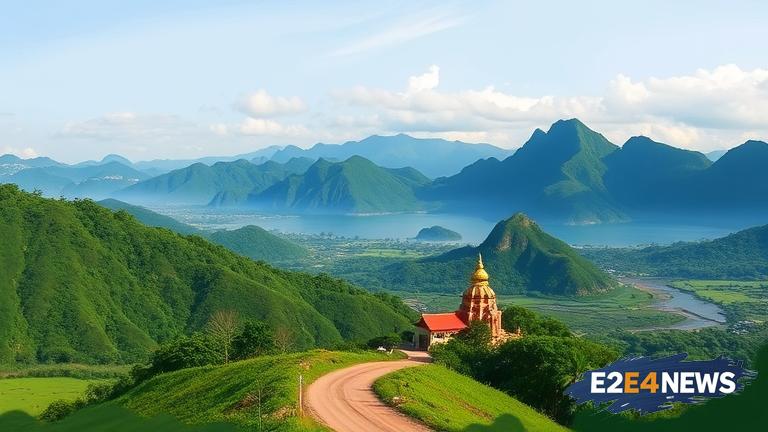Laos, a country located in Southeast Asia, is actively working to boost its tourism industry as a means to stimulate economic growth. The government has recognized the potential of tourism to contribute significantly to the country’s GDP and has implemented various initiatives to attract more visitors. One of the key areas of focus is the development of sustainable tourism practices, which aim to minimize the negative impacts of tourism on the environment and local communities. This approach is expected to not only benefit the economy but also preserve the country’s rich cultural heritage and natural beauty. Laos is home to a diverse range of tourist attractions, including ancient temples, stunning waterfalls, and vibrant markets. The country’s capital, Vientiane, is a popular destination, known for its laid-back atmosphere and historic landmarks such as the Patuxai Monument and the Phra That Luang temple. In addition to its cultural and natural attractions, Laos is also renowned for its delicious cuisine, which features a unique blend of Thai, Vietnamese, and French influences. The government has invested heavily in infrastructure development, including the construction of new roads, airports, and hotels, to support the growth of the tourism industry. Furthermore, efforts are being made to improve the country’s tourism infrastructure, including the development of new tourist information centers and the implementation of online booking systems. The Laos National Tourism Administration has also launched a number of marketing campaigns to promote the country’s tourism industry, both domestically and internationally. These campaigns have helped to increase awareness of Laos as a tourist destination and have attracted a growing number of visitors from around the world. In recent years, the country has seen a significant increase in tourist arrivals, with visitors from China, Vietnam, and Thailand being among the top sources of inbound tourism. The growth of the tourism industry is expected to have a positive impact on the country’s economy, with predictions suggesting that it will contribute up to 10% of Laos’ GDP by 2025. However, the government is also aware of the potential challenges associated with mass tourism, including the strain on local resources and the impact on traditional ways of life. To mitigate these risks, the government is working to promote responsible and sustainable tourism practices, which prioritize the needs of local communities and the environment. This approach is expected to not only benefit the economy but also contribute to the long-term conservation of Laos’ unique cultural and natural heritage. The development of community-based tourism projects is also being encouraged, which allow local communities to benefit directly from tourism and provide visitors with a more authentic and immersive experience. In addition to its economic benefits, the growth of the tourism industry is also expected to have a positive impact on the country’s cultural heritage, with efforts being made to preserve and promote traditional arts, crafts, and festivals. The government has also recognized the importance of tourism in promoting cultural exchange and understanding, and is working to develop new tourism products and services that showcase the country’s rich cultural diversity. Overall, the development of the tourism industry is a key priority for the government of Laos, and is expected to play a major role in driving economic growth and promoting cultural exchange in the years to come. With its rich cultural heritage, stunning natural beauty, and warm hospitality, Laos is an attractive destination for tourists from around the world, and is well-placed to become a leading destination in Southeast Asia. The country’s unique blend of traditional and modern culture, combined with its stunning natural scenery, makes it an ideal destination for travelers looking for a unique and unforgettable experience. As the tourism industry continues to grow, it is expected that Laos will become an increasingly popular destination, attracting visitors from around the world and contributing to the country’s economic development.





